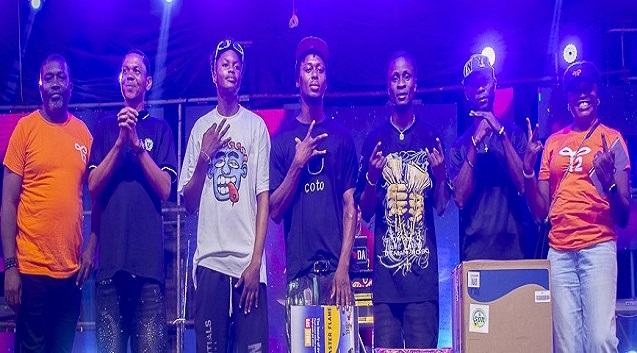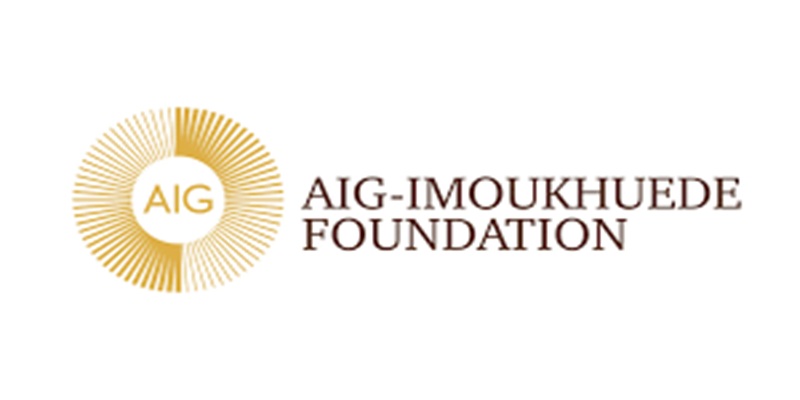Broadcasting
SERAP Asks Court to Stop Shutdown Of Broadcast Stations

Socio-Economic Rights and Accountability Project (SERAP) has urged the Federal High Court in Lagos to restrain the federal government from shutting down broadcast stations in Nigeria over their coverage of the 2023 general elections.

SERAP asked the court for an order of perpetual injunction restraining President Muhammadu Buhari and the National Broadcasting Commission (NBC), whether jointly or severally or any other authority, person or group of persons from unilaterally sanctioning and threatening to revoke the licences of any broadcast stations and shutting down the stations on the grounds of covering the 2023 general elections.
Also joined in the suit, which is yet to be assigned to a judge, as defendant is Alhaji Lai Mohammed, minister of information and culture.
The civil society organisation is also praying the court to determine whether the broadcasting code used by the NBC to sanction some broadcast stations and threaten to shut down others is not inconsistent and incompatible with freedom of expression, access to information and media freedom
The organisation further urged the court for an order of interim injunction restraining President Buhari, the NBC and Mohammed from threatening and sanctioning broadcast stations in the country simply for carrying out their constitutional duties, pending the hearing and determination of the motion on notice filed contemporaneously in this suit.
SERAP also wants the court to declare that the arbitrary action by NBC to sanction some broadcast stations and threaten to revoke the licences of others and shut them down for covering the general elections is a violation of section 39 of the Nigerian Constitution 1999 (as amended), and Article 9 of the African Charter on Human and Peoples’ Rights (Ratification and Enforcement) Act.
In an affidavit attached to the suit, SERAP averred that it is a travesty of justice to punish and threaten broadcast stations seeking to promote election integrity and citizens’ engagement and participation, while allowing perpetrators of electoral violence and grave human rights violations escape accountability for their alleged crimes.
The applicant also submitted that rather than promptly investigating allegations of election-related violence and other infractions of the Electoral Act and the Nigerian Constitution, and going after suspected perpetrators, the Nigerian government is scapegoating the media by targeting and punishing broadcast stations.
SERAP contended that the use of NBC Act and Code in this case would open the door to arbitrariness and fundamentally restrict freedom of expression that is an integral part of the public order protected by the Nigerian Constitution and human rights treaties to which Nigeria is a state party.
The organisation further argued that, “the media plays an essential role as a vehicle or instrument for the exercise of freedom of expression and information in a democratic society.
“The NBC legislation and codes do not confer unfettered discretion for the restriction of freedom of expression and media freedom on those charged with their implementation.
“The sanctioning of some broadcast stations and threat by the NBC to revoke the licences of others and shut them down is neither necessary nor proportionate, as it would unduly intrude upon Nigerians’ right to freedom of expression, access to information, and media freedom.
“The use of vague and undefined phrases such as ‘unpatriotic individuals’ ‘subversive, hateful, and inciting utterances, particularly post-election’, as grounds to sanction and threaten to broadcast stations is inconsistent and incompatible with human rights requirements.
“The Nigerian Constitution and human rights treaties impose legal obligations on the Nigerian government to refrain from imposing restrictions which are not consistent with human rights requirements, including on discussion of political and election-related issues.
“It is also inconsistent with constitutional and international human rights requirements to sanction and threaten broadcast stations solely for their coverage of the issues around the general elections on the basis of vague phrases such as ‘unguarded statements’, and ‘negative conversations’ used by the NBC,” SERAP said.
Broadcasting
US invests $115m in counter-drone tech for World Cup security


Drone
The US Department of Homeland Security (DHS) will invest $115 million in counter-drone technology to safeguard the 2026 FIFA World Cup and events marking America’s 250th independence anniversary, creating a dedicated office for rapid drone system deployment.
Homeland Security Secretary Kristi Noem described drones as “the new frontier of American air superiority,” stressing the need to counter threats from drug cartels using unmanned aircraft for smuggling and surveillance, alongside incidents like a 2025 NFL stadium drone flight and 2024 New Jersey sightings.
The funding supports 11 World Cup host cities expecting over one million visitors, building on FEMA’s $250 million grants to those states and addressing risks heightened by cartels’ advancing tech, including a reported FBI tracking plot in Mexico.
DHS has conducted over 1,500 counter-drone missions since 2018, with the new Program Executive Office accelerating acquisitions amid President Trump’s border security push.
Broadcasting
Youth Talent Takes Center Stage as T2 Ignites High-Octane Rap Battles @ Carnival Calabar

The energy at the Carnival Calabar Music Concert reached a new high as T2 introduced a first-ever rap battle platform, giving young Nigerians an electrifying stage to showcase their talent, creativity, and self-expression while competing for exciting prizes.

Held at the U.J. Esuene Stadium, the activation blended pulsating music, vibrant culture, and youthful energy into a dynamic celebration that kept thousands of carnival-goers fully engaged from start to finish.
Eight fearless contestants stepped into the spotlight, going bar for bar in an intense lyrical showdown. Rappers fused local languages, pidgin, and sharp punchlines, creatively weaving the T2 brand into their verses.
Anchored by the energetic hosting duo MC Double I and MC Princess, the rap battles thrilled over 16,000 attendees, including the Governor of Cross River State, Senator Bassey Otu, delivering an unforgettable showcase of youth talent and cultural expression.
With prizes including fridges, gas cookers, sound systems, and airtime top-ups, the competition remained fierce throughout the night. After two high-energy rounds narrowed the field to a five-man final duel, Emmanuel Eye emerged as the overall winner, taking home the grand prize — a fridge.
“I never expected this at all,” Emmanuel said. “I came to the concert like anyone else, and hearing about the T2 rap battle was a surprise. When I got the chance to perform, I just went for it. Being named the overall winner is amazing, and I’m grateful to T2 for creating this platform to showcase our talent.”
Beyond the stage performances, T2’s presence added a digital layer to the carnival experience. As part of its role as Digital Technology Partner of Carnival Calabar, the brand introduced the MyT2 App as a lifestyle companion, while also enabling line reactivations, airtime top-ups, and instant rewards for hundreds of attendees, blending technology seamlessly into the live celebration.
Commenting on the activation, Chinelo Manefo, Specialist, Events and Sponsorship at T2, said:
“The energy from both the rappers and the crowd was incredible. This platform reflects exactly what T2 aims to create — a celebration of youth, creativity, and culture, enhanced by technology that connects people and experiences. Seeing the audience so immersed shows how music and performance can empower the next generation.”
The Carnival Calabar Music Concert, headlined by Tiwa Savage, Timaya, and top local performers, was further energized by T2’s interactive rap battle platform. By blending music, culture, youth expression, and digital innovation, T2 reinforced its commitment to championing Nigeria’s next generation, giving young creatives a stage to shine while enriching how they experience the festival.
Broadcasting
Aig-Imoukhuede Foundation Wrapped Up 2025 with Real Change in Governance, Health, Media Across Africa

Aig-Imoukhuede Foundation has announced its 2025 achievements, marking a year of accelerated impact, systemic reforms and innovation in public leadership and service delivery across Africa.

Aig-Imoukhuede Foundation
A statement issued on Wednesday in Lagos said the foundation strengthened governance, improved primary healthcare, drove digital transformation and elevated media’s role in promoting public sector accountability.
It said the AIG Public Leaders Programme (PLP) trained 72 public sector leaders from Nigeria, Egypt, Tanzania, Cameroon, Zambia, Malawi and Kenya—its fastest growth to date—bringing the alumni network to 309.
These alumni are driving 237 reform projects to enhance public institutions, from faster decision-making to greater transparency, with nine promoted to higher roles for their contributions.
On civil service modernisation, the foundation accelerated digitalisation at the Office of the Head of the Civil Service of the Federation (OHCSF), streamlining 19 processes and achieving a 75 per cent increase in work speed through automated workflows.
It also trained over 400 officials from the Federal Ministry of Justice, Federal Civil Service Commission and Federal Ministry of Innovation, Trade and Investment in digital skills to support the FCCSIP 25 initiative and ongoing digital rollouts.
In healthcare, the Adopt-A-Healthcare-Facility Programme renovated four primary healthcare centres in Edo State, boosting antenatal visits by 73 per cent, immunisation coverage over 100-fold and fully vaccinating 554 children, while supporting 6,788 patients.
The foundation recognised 18 outstanding public servants with ₦500,000 each via the Emily Aig-Imoukhuede Endowment Awards and received a partnership award from the OHCSF for civil service reform efforts.
To empower media, it trained 50 journalists from top Nigerian media houses in impact storytelling, data analysis, visual and ethical reporting to better inform citizens on public sector changes.
Over five years (2021–2025), the foundation invested £2.6 million in PLP, saved ₦2.38 billion for the public sector through capacity building, trained 1,500+ civil servants, upskilled 660 digitally, trained 40 permanent secretaries and awarded 33 scholarships driving seven policy changes.
Other milestones include digitising 5,000 files, automating 333 processes, a 61 per cent efficiency gain, 60 per cent digital file creation at OHCSF, 128 excellence awards, 116 process reforms, 23 advocacy projects, 25 capacity initiatives, 18 podcasts, four healthcare articles, three policy papers, 23 adopted PHCs (four renovated) and 878+ fully immunised children aged 0–9 months.
Executive Vice Chair, Mr Aigboje Aig-Imoukhuede, said: “2025 was a year of real, measurable impact. From training hundreds of public servants to improving healthcare, helping ministries go digital, and equipping journalists to tell stories that matter, our work is making governments work better for citizens and communities across Africa.”

 E-Financial1 day ago
E-Financial1 day agoHere Are Nigerian Banks That Have Secured Their Licences

 E-Financial1 day ago
E-Financial1 day agoZenith Bank Top Nigerian Bank Pick Ahead of GTCO, AccessCorp

 Telecom1 day ago
Telecom1 day agoMTN CEO Toriola Hails Nigeria’s Telecom Transformation at MIPAD

 News1 day ago
News1 day agoICPC Charges Ozekhome with Forgery, Corruption Over London Property

 E-Financial1 day ago
E-Financial1 day agoNigeria Processed $92.1Bn Crypto Transactions in 12 Months — PwC

 Telecom1 day ago
Telecom1 day agoLebara Launches Agent Registration Portal

 E-Financial1 day ago
E-Financial1 day agoHow Crypto Criminals Stole $700m from People – often Using Age-Old Tricks

 E-Business1 day ago
E-Business1 day agoElon Musk Seeks $134Bn from OpenAI, Microsoft for ‘Wrongful Gains’
























